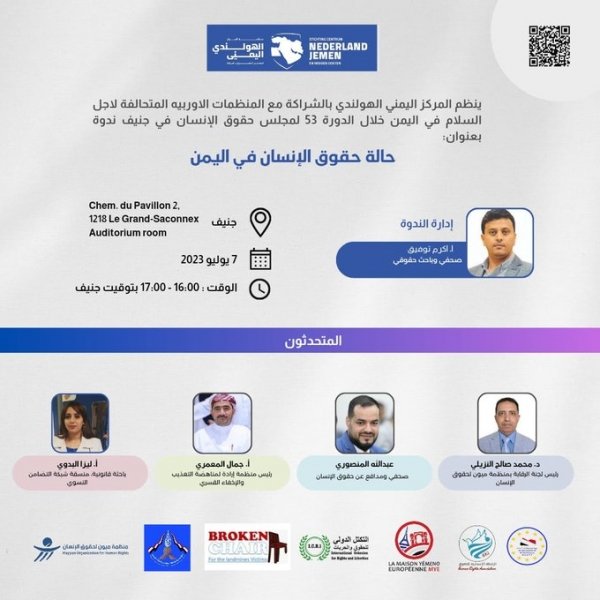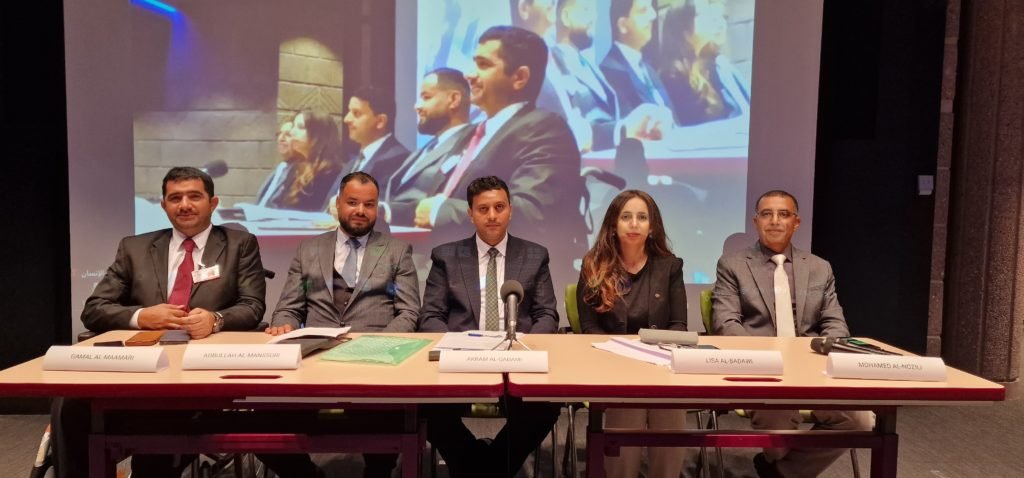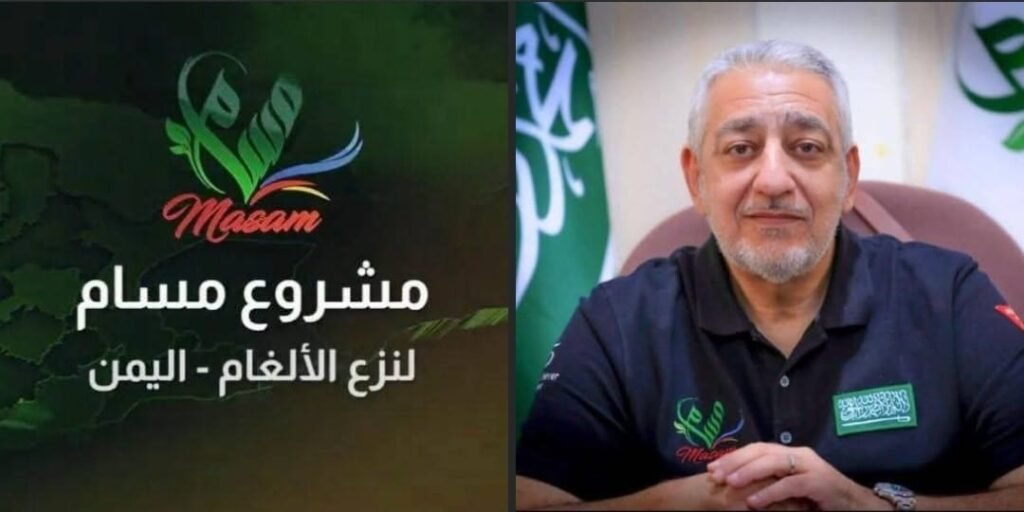The Yemeni-Dutch Center for the Defense of Rights and Freedoms, in partnership with European organizations allied for peace, organized a seminar on human rights in Yemen. The seminar focused on the violations committed by various parties to the conflict and the challenges faced in the enjoyment of these fundamental rights.
The seminar was attended by a number of human rights activists, journalists, and experts on human rights, held on the sidelines of the 53rd session of the Human Rights Council in Geneva.

In his paper, journalist and human rights activist Abdullah Al-Mansouri spoke about the general situation of journalism in Yemen in recent years and the severe hardships it has faced. He highlighted that Yemeni journalists continue to face ongoing violations and harassment. Despite repeated condemnations issued by local and international organizations, these efforts have failed to put an end to the physical and psychological abuse that Yemeni journalists endure.
Al-Mansouri added that journalism in Yemen has been subjected to the harshest forms of suppression and systematic targeting of its structure and its workers since September 21, 2014. He noted that journalists found themselves early on in the crosshairs of various repressive tools and that the Houthi disregard for their lives, safety, and dignity expanded to include their families, relatives, social circles, and personal friendships.
He pointed out that the Houthi terrorist militia, which is responsible for the majority of the most heinous crimes against the press, has continued to arrest and forcibly disappear a number of journalists since mid-2015. Among them is journalist Waheed Al-Sufi, who was abducted by Houthi elements from a street in Sana’a while paying his internet bill in April 2015. To this day, no one knows his whereabouts, and no one has been able to discover where he is being held in secret detention.
Al-Mansouri discussed the similarities in the dangers faced by Yemeni journalists, both male and female, since the beginning of the war. He added that female journalists are the most vulnerable to these professional risks. Many Yemeni women journalists have been subjected to distressing incidents, such as death threats, verbal and physical assault, and online harassment, in addition to the lack of any protective measures for them.
He stated that the impunity of those who commit crimes against journalists in Yemen, and the lack of accountability, has exacerbated the violations without fear of reprisal. He emphasized the need to intensify efforts at both the local and international levels to establish legal accountability and punish the perpetrators of these violations, considering them as crimes that do not fall under the statute of limitations. He stressed that those responsible must not go unpunished.
Several interventions were made during the seminar by participants, who discussed the human rights situation in Yemen since the beginning of the war.



